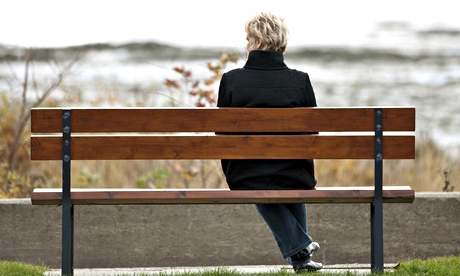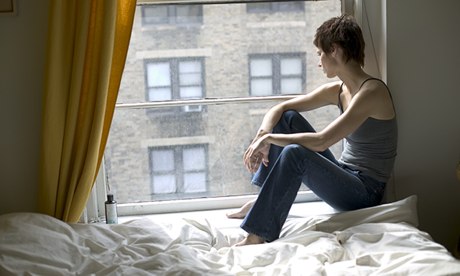'People will forgive you for being wrong, but they will never forgive you for being right - especially if events prove you right while proving them wrong.' Thomas Sowell
Search This Blog
Showing posts with label care. Show all posts
Showing posts with label care. Show all posts
Tuesday, 11 May 2021
Wednesday, 3 June 2020
Making GDP the focus of a post-coronavirus economy would be a mistake
Growth often doesn’t benefit the people who need it – a green economy could create 1 million jobs writes Carys Roberts in The Guardian

The recovery must target well-paid, high-quality jobs, spread around the country. These must provide good work for those who have lost it as a result of Covid-19, as well as people previously locked out of the jobs market or at risk of being left behind on the journey to net zero. This is a more profound shift than it appears. Currently, stimulus packages aim to boost GDP, and jobs are a way to get there. But what matters is that ordinary people have access to secure incomes – both for themselves, and because this will ensure spending in the economy (people who need money are more likely to spend it) and a sustainable tax base. An alternative approach, for example, of loosening lending restrictions for mortgages, might boost GDP but would do so by increasing debt and raising house prices, benefitting the already wealthy while hurting people without wealth.
The recovery must involve a reconsideration of what is valuable in society. The pandemic has put into stark relief the extraordinary contribution of health and care workers, many of whom are women and migrants, and the essential support of key workers across the economy. The recovery must recognise that contribution in higher pay and better working conditions. So, too, the pandemic has caused conversations up and down the country about unpaid care work and who performs it. But the easing of lockdown has prioritised marketised activity over human relationships, which don’t require cash. You can visit your parents at home, but only if you want to purchase their house or clean it. The recovery should recognise and reflect what is important to people and valuable – not just economic activity.

Britons want quality of life indicators to take priority over economy
These goals are not in conflict but instead are inextricably linked. Achieving them requires and provides an opportunity to rethink an economy that doesn’t work for so many across the country or for future generations. We estimate that close to a million good jobs could be created in this new, green economy, with many more if we choose to invest in our social care system.
Talking about and targeting the “economy” as an abstraction masks the underlying shape and nature of the activity taking place underneath. It means we miss people: who loses out, and who benefits from the status quo being restored. Lockdown has found us in a collective moment of reimagining, but this will not last for ever: we should use it to ask what economic activity we want to rebuild, and what we could do without.

‘A green recovery does not mean adding on a few green job programmes to a larger, fossil-fuelled stimulus.’ Low Bentham Solar Park, North Yorkshire. Photograph: Peter Byrne/PA
The UK lockdown might be easing, but the path ahead for the economy will be long and difficult. Unemployment this quarter is likely to rise twice as fast as it did following the global financial crisis. Almost half of businesses that have taken up one of the government’s bounce-back loans do not expect to be able to pay it back.
It’s tempting in a crisis to want to do whatever it takes to get economic activity – measured by GDP – back to where it was before. But an overwhelming and singular focus on increasing GDP would be a mistake. GDP figures do not tell us who is benefitting from growth. GDP does not tell us whether environmental resources – and nature – are being dangerously depleted, and does not reflect the value of caring, much of which is performed by women.
Boris Johnson has called for the UK to “build back better”, but to use government resources and capacity most effectively and – more fundamentally – to take the opportunity to build a better kind of economy and society, we need to know what it is we want to rebuild. This is precisely the moment to think beyond a blind pursuit of GDP, about what kind of economic activity to bring back and prioritise, and what we could do without. Any stimulus package must be tailored to create not just any economic activity, but that which will serve society best. As a result, any recovery or spending plan should be scrutinised not just on its size, but what it is spent on.
This must be a green recovery. That does not mean adding on a few green job programmes to a larger, fossil-fuelled stimulus: the whole recovery package must accelerate the UK’s path to net-zero carbon and restore our natural environment, which is in crisis. Anything else risks emerging from one disaster only to accelerate headlong into another. As the government turns on the taps to boost the economy, there is a huge opportunity to fill the £30bn per year funding gap for green investment.
The UK lockdown might be easing, but the path ahead for the economy will be long and difficult. Unemployment this quarter is likely to rise twice as fast as it did following the global financial crisis. Almost half of businesses that have taken up one of the government’s bounce-back loans do not expect to be able to pay it back.
It’s tempting in a crisis to want to do whatever it takes to get economic activity – measured by GDP – back to where it was before. But an overwhelming and singular focus on increasing GDP would be a mistake. GDP figures do not tell us who is benefitting from growth. GDP does not tell us whether environmental resources – and nature – are being dangerously depleted, and does not reflect the value of caring, much of which is performed by women.
Boris Johnson has called for the UK to “build back better”, but to use government resources and capacity most effectively and – more fundamentally – to take the opportunity to build a better kind of economy and society, we need to know what it is we want to rebuild. This is precisely the moment to think beyond a blind pursuit of GDP, about what kind of economic activity to bring back and prioritise, and what we could do without. Any stimulus package must be tailored to create not just any economic activity, but that which will serve society best. As a result, any recovery or spending plan should be scrutinised not just on its size, but what it is spent on.
This must be a green recovery. That does not mean adding on a few green job programmes to a larger, fossil-fuelled stimulus: the whole recovery package must accelerate the UK’s path to net-zero carbon and restore our natural environment, which is in crisis. Anything else risks emerging from one disaster only to accelerate headlong into another. As the government turns on the taps to boost the economy, there is a huge opportunity to fill the £30bn per year funding gap for green investment.
The recovery must target well-paid, high-quality jobs, spread around the country. These must provide good work for those who have lost it as a result of Covid-19, as well as people previously locked out of the jobs market or at risk of being left behind on the journey to net zero. This is a more profound shift than it appears. Currently, stimulus packages aim to boost GDP, and jobs are a way to get there. But what matters is that ordinary people have access to secure incomes – both for themselves, and because this will ensure spending in the economy (people who need money are more likely to spend it) and a sustainable tax base. An alternative approach, for example, of loosening lending restrictions for mortgages, might boost GDP but would do so by increasing debt and raising house prices, benefitting the already wealthy while hurting people without wealth.
The recovery must involve a reconsideration of what is valuable in society. The pandemic has put into stark relief the extraordinary contribution of health and care workers, many of whom are women and migrants, and the essential support of key workers across the economy. The recovery must recognise that contribution in higher pay and better working conditions. So, too, the pandemic has caused conversations up and down the country about unpaid care work and who performs it. But the easing of lockdown has prioritised marketised activity over human relationships, which don’t require cash. You can visit your parents at home, but only if you want to purchase their house or clean it. The recovery should recognise and reflect what is important to people and valuable – not just economic activity.

Britons want quality of life indicators to take priority over economy
These goals are not in conflict but instead are inextricably linked. Achieving them requires and provides an opportunity to rethink an economy that doesn’t work for so many across the country or for future generations. We estimate that close to a million good jobs could be created in this new, green economy, with many more if we choose to invest in our social care system.
Talking about and targeting the “economy” as an abstraction masks the underlying shape and nature of the activity taking place underneath. It means we miss people: who loses out, and who benefits from the status quo being restored. Lockdown has found us in a collective moment of reimagining, but this will not last for ever: we should use it to ask what economic activity we want to rebuild, and what we could do without.
Thursday, 9 May 2019
As a doctor, I say it’s time to nationalise GP surgeries
Practices refuse to take on work that benefits patients because it isn’t in their business interest. Let’s bring them into the NHS writes Dr Paul Williams, a GP and the Labour MP for Stockton South, in the Guardian

‘Evidence suggests that many GPs would be open to moving to a salaried model.’ Photograph: Alamy Stock Photo
As a health service leader, I was astounded by the number of times practices wouldn’t take on work that was clearly beneficial to their patients, because it wasn’t in their business interest. I have battled with GPs who told me that they weren’t paid enough to do annual health checks for adults with learning disabilities (they get more than £100 per check), wouldn’t take student nurses on placement because the profits weren’t large enough, and wouldn’t offer appointments in early mornings or evenings because it was “optional”. That clearly isn’t right or fair to their patients.
Our health services should be designed around need. The places with the oldest people and the highest levels of deprivation should get the greatest resources. The inverse care law tells us that in the real world the opposite happens. Practices emerge where doctors want them to be, rather than where public health needs assessment tells us they should be.
Culture and leadership are always more important than organisational structure, but a new ownership model for primary care would create an environment that facilitates happy staff and healthier patients.
Employee-led mutuals should be created within the NHS with nurses, doctors, pharmacists, therapists, managers and patients all having a say in how the organisation is run. These new organisations – instilled with a progressive and innovative culture – would be much better working environments for staff, with improved career pathways for nurses and more incentives to invest in people. As they would be within the NHS, there would be no profit motive. Crucially, they wouldn’t be able to pick and choose which services to offer to their patients. Struggling practices could receive investment to bring them up to the level of the best.
This model would enable a strategic shift from reactive and hospital-based care to preventive community care – without the NHS having to pay a premium price that includes GP profit. All existing GPs should be offered salaried employment within these organisations. Those that wish to retain their existing contractual arrangements should be allowed to do so. This is likely to be particularly important in rural communities.
Groups of general practices are already coming together into primary care networks. This is a step in the right direction. Why not give them the option to go one step further, become NHS primary and community care organisations, and complete Nye Bevan’s NHS?
‘Public satisfaction with general practice remains relatively high, but not all practices work as well as they should for their patients.’ A receptionist at a GP surgery. Photograph: Anthony Devlin/PA
General practices support patients through every stage of their life. They are the heart of their communities and the gateway to our NHS. Every day, around a million GP consultations take place in English practices. We should rightly be very proud of our system of primary care.
But it isn’t perfect. As data published this week shows, patient demand for general practice services is increasing while the number of GPs is actually falling – according to the survey, one in 10 GPs are in contact with 60 or more patients a day, which is double the safe limit. At a time when people are living longer, and health problems are becoming more complex, the government has spectacularly failed to deliver its promise of an extra 5,000 GPs. Not enough medics want to be GPs, and too many doctors leave general practice too early.
Simple changes might make things better for staff working in primary care, and for patients. When the NHS was founded in 1948, hospitals were brought into public ownership and general practice was left in the private sector, where, mostly, it has remained. Most of the time your GP doesn’t get a salary. They have contracts with the NHS and local authority for a variety of services and they take home the “profit” that they make.
While some think the partnership model is more productive than being employed like hospital colleagues, it is not right for everyone. Increasingly, GPs do not want to become partners because of the levels of responsibility and financial risk involved. Evidence suggests that many GPs would be open to moving to a salaried model. At the same time, there are many other staff who work in primary care who would like more influence over the organisation they work for.
Public satisfaction with general practice remains relatively high, but not all practices work as well as they should for their patients. In many practices you can see a doctor on the same day, but in the area I represent as an MP, in March 4,437 people had to wait more than 28 days between making an appointment and having a consultation. In some parts of my constituency, poor access to a GP is the biggest issue that people contact me about.
General practices support patients through every stage of their life. They are the heart of their communities and the gateway to our NHS. Every day, around a million GP consultations take place in English practices. We should rightly be very proud of our system of primary care.
But it isn’t perfect. As data published this week shows, patient demand for general practice services is increasing while the number of GPs is actually falling – according to the survey, one in 10 GPs are in contact with 60 or more patients a day, which is double the safe limit. At a time when people are living longer, and health problems are becoming more complex, the government has spectacularly failed to deliver its promise of an extra 5,000 GPs. Not enough medics want to be GPs, and too many doctors leave general practice too early.
Simple changes might make things better for staff working in primary care, and for patients. When the NHS was founded in 1948, hospitals were brought into public ownership and general practice was left in the private sector, where, mostly, it has remained. Most of the time your GP doesn’t get a salary. They have contracts with the NHS and local authority for a variety of services and they take home the “profit” that they make.
While some think the partnership model is more productive than being employed like hospital colleagues, it is not right for everyone. Increasingly, GPs do not want to become partners because of the levels of responsibility and financial risk involved. Evidence suggests that many GPs would be open to moving to a salaried model. At the same time, there are many other staff who work in primary care who would like more influence over the organisation they work for.
Public satisfaction with general practice remains relatively high, but not all practices work as well as they should for their patients. In many practices you can see a doctor on the same day, but in the area I represent as an MP, in March 4,437 people had to wait more than 28 days between making an appointment and having a consultation. In some parts of my constituency, poor access to a GP is the biggest issue that people contact me about.

‘Evidence suggests that many GPs would be open to moving to a salaried model.’ Photograph: Alamy Stock Photo
As a health service leader, I was astounded by the number of times practices wouldn’t take on work that was clearly beneficial to their patients, because it wasn’t in their business interest. I have battled with GPs who told me that they weren’t paid enough to do annual health checks for adults with learning disabilities (they get more than £100 per check), wouldn’t take student nurses on placement because the profits weren’t large enough, and wouldn’t offer appointments in early mornings or evenings because it was “optional”. That clearly isn’t right or fair to their patients.
Our health services should be designed around need. The places with the oldest people and the highest levels of deprivation should get the greatest resources. The inverse care law tells us that in the real world the opposite happens. Practices emerge where doctors want them to be, rather than where public health needs assessment tells us they should be.
Culture and leadership are always more important than organisational structure, but a new ownership model for primary care would create an environment that facilitates happy staff and healthier patients.
Employee-led mutuals should be created within the NHS with nurses, doctors, pharmacists, therapists, managers and patients all having a say in how the organisation is run. These new organisations – instilled with a progressive and innovative culture – would be much better working environments for staff, with improved career pathways for nurses and more incentives to invest in people. As they would be within the NHS, there would be no profit motive. Crucially, they wouldn’t be able to pick and choose which services to offer to their patients. Struggling practices could receive investment to bring them up to the level of the best.
This model would enable a strategic shift from reactive and hospital-based care to preventive community care – without the NHS having to pay a premium price that includes GP profit. All existing GPs should be offered salaried employment within these organisations. Those that wish to retain their existing contractual arrangements should be allowed to do so. This is likely to be particularly important in rural communities.
Groups of general practices are already coming together into primary care networks. This is a step in the right direction. Why not give them the option to go one step further, become NHS primary and community care organisations, and complete Nye Bevan’s NHS?
Saturday, 7 January 2017
I'm a junior doctor in the NHS, and I'm terrified for this winter
Aislinn Macklin-Doherty in The Guardian
Widespread concerns that the NHS will face the “toughest winter ever” are not exaggerated or unfounded – just look at the terrible news today from Worcestershire. We really should be worried for ourselves and our relatives. As a junior doctor and a researcher looking after cancer patients in the NHS, I am terrified by the prospect of what the next few months will bring. But we must not forget this is entirely preventable.

Three patients die at Worcestershire hospital amid NHS winter crisis
Our current crisis is down to the almost clockwork-like series of reshuffling, rebranding and top-down disorganisation of the services by government. It’s led to an inexorable decline in the quality of care.
I have also become aware of an insidious “takeover” by the private sector. It is both literal – in the provision of services – and ideological, with an overwhelming prevalence of business-speak being absorbed into our collective psyche. But the British public (and even many staff) remain largely unaware that this is happening.
Where the consultant physician or surgeon was once general, they now increasingly play second fiddle to chief executives and clinical business unit managers. Junior doctors such as myself (many of whom have spent 10-15 years practising medicine and have completed PhDs) must also fall in line to comply with business models and corporate strategy put forward by those with no clinical training or experience with patients.
It is this type of decision-making (based on little evidence) and seemingly unaccountable policymaking that means patient care is suffering. Blame cannot be laid at the feet of a population of demanding and ageing patients, nor the “health tourists” who are too often scapegoated.
The epitome of such changes is known as the “sustainability and transformation plans”. These will bring about some of the biggest shifts in how NHS frontline service are funded and run in recent history, and yet, worryingly, most of my own colleagues have not even heard of them. Even fewer feel able to influence them.
Sustainability and transformation plans will see almost a third of regions having an A&E closed or downgraded, and nearly half will see numbers of inpatient bed reductions. This is all part of the overarching five-year plan to drive through £22bn in efficiency savings in the NHS. But with overwhelming cuts in social services and community care and with GPs under immense pressure, people are forced to go to A&E because they quite simply do not have any other options.
I have been on the phone with patients with cancer who need to come into hospital with life-threatening conditions such as sepsis, and I have been forced to tell them, “We have no beds here you need to go to another local A&E.” Responses such as, “Please doctor don’t make me go there – last time there were people backed up down the corridors,” break my heart.
Widespread concerns that the NHS will face the “toughest winter ever” are not exaggerated or unfounded – just look at the terrible news today from Worcestershire. We really should be worried for ourselves and our relatives. As a junior doctor and a researcher looking after cancer patients in the NHS, I am terrified by the prospect of what the next few months will bring. But we must not forget this is entirely preventable.

Three patients die at Worcestershire hospital amid NHS winter crisis
Our current crisis is down to the almost clockwork-like series of reshuffling, rebranding and top-down disorganisation of the services by government. It’s led to an inexorable decline in the quality of care.
I have also become aware of an insidious “takeover” by the private sector. It is both literal – in the provision of services – and ideological, with an overwhelming prevalence of business-speak being absorbed into our collective psyche. But the British public (and even many staff) remain largely unaware that this is happening.
Where the consultant physician or surgeon was once general, they now increasingly play second fiddle to chief executives and clinical business unit managers. Junior doctors such as myself (many of whom have spent 10-15 years practising medicine and have completed PhDs) must also fall in line to comply with business models and corporate strategy put forward by those with no clinical training or experience with patients.
It is this type of decision-making (based on little evidence) and seemingly unaccountable policymaking that means patient care is suffering. Blame cannot be laid at the feet of a population of demanding and ageing patients, nor the “health tourists” who are too often scapegoated.
The epitome of such changes is known as the “sustainability and transformation plans”. These will bring about some of the biggest shifts in how NHS frontline service are funded and run in recent history, and yet, worryingly, most of my own colleagues have not even heard of them. Even fewer feel able to influence them.
Sustainability and transformation plans will see almost a third of regions having an A&E closed or downgraded, and nearly half will see numbers of inpatient bed reductions. This is all part of the overarching five-year plan to drive through £22bn in efficiency savings in the NHS. But with overwhelming cuts in social services and community care and with GPs under immense pressure, people are forced to go to A&E because they quite simply do not have any other options.
I have been on the phone with patients with cancer who need to come into hospital with life-threatening conditions such as sepsis, and I have been forced to tell them, “We have no beds here you need to go to another local A&E.” Responses such as, “Please doctor don’t make me go there – last time there were people backed up down the corridors,” break my heart.
According to the Kings Fund, our NHS leaders are choosing to spend less year-on-year on healthcare (as a proportion of GDP) than at any other time in NHS history and yet we are the fifth richest economy in the world. Simultaneously private sector involvement increases and astronomical interest rates from private finance initiatives must be paid, with hospitals such as St Bartholomew’s in London having to pay up to £2m per week in interest alone. No wonder nearly all hospitals are now in dire straits.
This is all the result of intentional policies being made at the top with minimal consultation of those on the frontline. With such policies accumulating over the years we are now seeing the crisis come to a climax. The UK has fewer beds per person and fewer doctors per person than most countries in Europe. Fewer ambulances are now able to reach the highest-category emergencies, which means people having asthma attacks, heart attacks and traffic accidents are being left to wait longer in situations where minutes really matter.
The sustainability and transformation plans for my local area in south-west London show that they plan to cut 44% of inpatient bed stays over the next four years . This is dangerous. It is likely that St Helier hospital in Sutton, which takes many emergencies in the area, will close and patients will then not only have access to critically reduced services, they will then have to travel longer to hospital, having waited longer for the ambulance to get to them.
This will be the straw that broke the camel’s back. I cannot stand by while patients’ lives are put at unnecessary risk this winter. And neither should you.
This is all the result of intentional policies being made at the top with minimal consultation of those on the frontline. With such policies accumulating over the years we are now seeing the crisis come to a climax. The UK has fewer beds per person and fewer doctors per person than most countries in Europe. Fewer ambulances are now able to reach the highest-category emergencies, which means people having asthma attacks, heart attacks and traffic accidents are being left to wait longer in situations where minutes really matter.
The sustainability and transformation plans for my local area in south-west London show that they plan to cut 44% of inpatient bed stays over the next four years . This is dangerous. It is likely that St Helier hospital in Sutton, which takes many emergencies in the area, will close and patients will then not only have access to critically reduced services, they will then have to travel longer to hospital, having waited longer for the ambulance to get to them.
This will be the straw that broke the camel’s back. I cannot stand by while patients’ lives are put at unnecessary risk this winter. And neither should you.
Sunday, 3 May 2015
Why all medicine men should watch Munnabhai M.B.B.S
Shuvendu Sen in The Times of India
It does not have the somber ambiance of The Doctor, where a brash MD himself succumbs to throat cancer and is hushed to humility. It does not carry the macabre interaction of a supposedly psychologically disturbed man and a tyrannical nurse as seen in One Flew Over the Cuckoo’s Nest. Neither does it inspire an awakening as Philadelphia did through a gay lawyer fighting AIDS.
Munnabhai MBBS is anything but the tempting medical plot hashing out tears, tension and hope. It walks clear of such obvious seductions. Truth be told, the movie is as loud as it can get, carries all the ingredients of Bollywood absurdity and harps on emotions, raw and running. But take a moment to peer beneath the rubble and you would smell a treasure. A rare treasure’s takes on a mission that has degenerated into a profession soaked with cynicism and slit throat parlance. And I am no film reviewer.
Let us take an earthly stand. When was the last time, we physicians have put our right hands up and taken the oath that we would take care of patients over and above vested interests? When was the last time, save glorious exceptions, we have crossed the borders of our financial gains and taken a bow for the penniless sufferer? When was the last time we thanked the hospital sweeper for his services to patient care? For that matter, when was the last time a medical book was written to highlight the absolute necessity to reach out to a stage four cancer patient other than through mindless chemotherapy and pain medications? Fact remains that medicine, like none other profession has become the yardstick of a cultivated upper lip vocation, to pursue and prevail. In our pursuit for perfection we have lost the imperfect patient.
And the fact that Munna bhai, despite all his convivial and genteel mindset, was a full blown quack, a rank outsider, drenched in liquor, roadside patois and all that was coarse and callous, made the white coat adorned messiahs look even more like bloodless bodies. Harsh words, but if anything had been flushed down the drain in the practice of medicine, it had to be empathy and emotions. Formless jottings have replaced tender words. Machines have superseded probing minds. An impatient doctor sits across the floor, rummaging the symptoms, inaccessible to the sufferer.
But of course, Munnabhai M.B.B.S has its own share of absolute lunacy. The frequent fist fights, the semi clad on-campus dance and the lugubrious antics are a far cry from the austere charm and book like precision of its western counterparts. But there’s a reason why British Medical Journal took a note of this movie. One suspects the makers of this movie played the human mind well.
Sometimes the finest sustains longer when drowned under the gross. The fine trickle beneath the plunging waves has always made its presence felt. Cure has always been the visible highpoint of medicine. It is the unseen, unspoken care that needs visibility. Munna bhai was all about that care.
Wednesday, 13 August 2014
Good friends are hard to find – and even harder to keep
If millions of us have no mates it could be because enduring friendships require care and humility

A survey by Relate rather shockingly suggests that as many as 10% of people in the UK don’t have a single friend to turn to. That translates into nearly 5 million adults who are, in effect, friendless.
Even factoring in that many of these unfortunates may be elderly people whose friends have died, or inadequates who lack functional social skills, that is still a significant number of ordinary people who just don’t know how to maintain good friendships.
---
Also read:
---
Also read:
One in 10 do not have a close friend and even more feel unloved
---
I am fortunate to be able to claim at least four friends, of both genders, who stretch back nearly 40 years, and a number of other more recent ones that are close and durable. But I have also lost enough to understand that friendships are difficult, and the closer they are the more difficult they become. This is also true of family relationships, but it’s very hard to escape your family. With friends, if you annoy them too much, they can just drop you. Within this simple fact lies one of the first principles of friendship – tread carefully. Friends are precious, even irreplaceable, but they are also fragile.
Treading carefully is easier said than done. Part of a good friendship is honesty, and sooner or later one is forced to choose between being amenable and giving a friend the honesty you think the relationship merits. But honesty is always a risky strategy, whether it’s asking “Do you like my new dress/suit?” or “Do you like my new girlfriend/boyfriend?” Sometimes you are forced to find out what your friendship rests on, and sometimes the foundations prove insubstantial.
Friendships can be rooted in a number of different impulses. Unhealthy elements like need, the desire for borrowed status, and the wish for flattery are as common as the more healthy ones like mutual interests, sense of humour and natural compatibility. The healthy and unhealthy are often mixed together, the latter concealed under the myth of “friendship”, which suggests, more than marriage, a certain (unrealistic) perfection of sensibility.
The thing with friends is that because they tend to be bit-players in one’s life – “let’s meet for drinks/a meal/a game/a movie” – it’s easy to build up a false idea about someone with whom you share a friendly relationship.
Generalisations along gender lines are always tricky, but – and this is a purely personal observation – I think women sometimes struggle with friendship in the long run as they seem to have an unspoken pact that a friend should always be supportive. They just invest so much in each other. Men often accept a little grit in the ointment – one can tell a male friend to fuck off without losing his friendship. Female friendships can struggle when the faults in either party begin to surface. Friends, like marriage partners, love each other, but they must also be allowed to hate each other sometimes.
I do not know what I am doing right to have kept such good friends for so long, but it is certainly worth pointing out that none of them have got to the present point without negotiating moments of crisis. In each of my closest friends there have been moments when the friendship has nearly foundered – but we somehow came through them to a relationship that was stronger than it was before the crisis.
The nature of friendship changes, and you have to change with it. Once, hopefully, I fascinated my friends and charmed them. After 40 years, I am sure I often bore them – and that is inevitable. A good friendship, like a good marriage, ceases after a while to be a mutual entertainment society and becomes instead a sorority or fraternity of battle-scarred veterans. We are still here, we still enjoy being around each other, and we treasure our shared histories. This is something precious, even if it isn’t always a laugh riot.
Is there a secret to long friendships? Simply this – an absence of pride. Too many falter on stubbornness or the determination to hold on to offence. Successful ones rely on humility and the recognition of human fallibility. These are not merely useful attributes. They are the heart and soul of friendship.
Tuesday, 22 October 2013
Loneliness is an inevitable result of Britain's economic model
The health secretary wants adults to look after their elderly parents to combat loneliness, as Asian people do. But Jeremy Hunt is wrong on who loneliness affects, wrong on what causes it, and wrong on what's happening in Asia

Living alone: Britain has seen a big rise in solo living, from 17% of all households in 1971 to 31% now. Photograph: Zave Smith/Corbis
The officials who broke down Joyce Carol Vincent's door were meant to be serving an eviction notice. Instead they found her corpse slumped on the sofa, with the light from the TV still flickering over her. By 2006, she had lain there for almost three years. Rent demands and other letters flooded the hallway; the food in the fridge had long since expired and piled around her skeleton were the presents she had just wrapped, for Christmas 2003. How Joyce died remains a mystery: there was no evidence of violence and she wasn't into drink or drugs. But the bigger question – the one that catches in your throat – is how it took three years for anyone to discover her death.
An outgoing and pretty 38-year-old, she had sisters, mates, former colleagues and ex-boyfriends. Those social circles appear to have failed her. The bedsit was part of a housing estate above the huge shopping centre in Wood Green, north London, with thousands milling about. But no neighbours reported anything amiss. Joyce's body had rotted so far it could only be identified by comparing dental records with a holiday photo of her smiling. But the stench was put down to whiffy bins, and the flies and insects swarming on the windowsills were ignored.
Even such grotesque details would ordinarily have become mere local gossip – were it not for Carol Morley, who was so disturbed by the story that she made a film about her, with a tenacity of care Joyce didn't enjoy while she was alive. Morley's 2011 drama-documentary, Dreams of a Life, shows city living as a series of weak links, forgettable friendships and single people getting by in their single housing units. By the end of it, you not only understand how a person can disappear from view; you wonder how many others suffer the same fate.
Joyce's story exemplifies the social isolation decried last Friday by Jeremy Hunt as a "national shame". It's an apt subject for a health secretary to address. Studies show that chronic loneliness wrecks one's health: pushing up stress levels, increasing blood pressure, disrupting sleep, even bringing on dementia. And, yes, it kills. The Chicago neuroscientist John Cacioppo, who has researched social seclusion for decades, has tallied up the harm posed by common health hazards. Air pollution increases your chances of dying early by 5%; obesity by 20%. Excessive loneliness pushes up your odds of an early death by 45%.
Hunt doesn't dispute those findings. Indeed, last week he brought forth some shockers of his own. Such stats should make tackling isolation a public-health priority for any government. This one, however, seems to be doing its best to increase loneliness: its bedroom tax and housing-benefit cuts are wrenching families out of their communities and driving them into other neighbourhoods, even other cities.
No surprise that this didn't elicit even a sentence from Hunt. More troubling is to see a set-piece ministerial intervention – with lobby briefings, press releases, newspaper splashes, the lot – tackle an important subject in an utterly trivial fashion.
Loneliness, if we are to believe the health secretary, is a problem that afflicts only the elderly. And it can be solved by adult children looking after their parents, with "the reverence and respect" of their Asian counterparts (who also, handily enough, make do without all that welfare-state padding). In the east, you see, "residential care is a last rather than a first option"; while westerners presumably pack their folks off to homes as joyfully as if they were checking them into spas.
Well, we shouldn't believe Jeremy Hunt, because he is wrong on all counts. Wrong on who loneliness affects, wrong on what causes it, and wrong even on what's happening in Asia.
First, surveys by the Mental Health Foundation suggest that young people are more likely to feel lonely than older people. That fits with the other evidence. Britain has seen a big rise in people living alone, from 17% of all households in 1971 to 31% now. But while the proportion of retirees living alone has hardly changed over the past four decades, it's Britons of working age who are increasingly on their own. This lifestyle isn't always a chosen one: think of how the divorce rate has nearly doubled since the 60s.
Solo living coupled with a culture that exalts individualism breeds isolation. Britain's economic model grants its winners all manner of economic freedoms, but it does so while weakening social bonds. Getting on your bike and looking for work, or moving abroad to get a job, means leaving your family and friends behind. Some of these gaps can be filled by consumer onanism and by psychic palliatives such as Facebook and Twitter. But not wholly, and not for long.
In his book, Loneliness, Cacioppo puts it thus: "A rising tide can lift a variety of boats, but in a culture of social isolates, atomised by social and economic upheaval and separated by vast inequalities, it can also cause millions to drown." He might have been thinking of Joyce Vincent.
The flipside of economic individualism is loneliness. And as that model has been exported around the world, even traditionally family-centred cultures have started to crumble. This summer, Beijing passed a law compelling adults to visit their parents, or face jail. And next time Hunt sounds off about eastern reverence for the elderly, he might remember this: the best adult care home in Beijing has a waiting list that is 100 years long.
Friday, 15 February 2013
Tuesday, 22 January 2013
'Old people should hurry up and die', says Japan deputy leader
Taro Aso, Japan's deputy prime minister, has been forced to pedal back from a suggestion that old people should "hurry up and die" to save the state the cost of providing them with medical care.
Mr Aso, who has a reputation for speaking indelicately, was commenting at a meeting of the National Council on Social Security Reforms on Monday on the heavy burden imposed on the nation's finances by prolonging patients' lives with treatment.
Describing patients with serious illnesses as "tube persons," Mr Aso, who is 72, said they should be "allowed to die quickly" if they want to, Kyodo News reported.
"Heaven forbid I should be kept alive if I want to die," he said. "You cannot sleep well when you think it's all paid by the government. This won't be solved unless you let them hurry up and die."
Mr Aso later issued a statement retracting some of his remarks and admitting it had been "inappropriate" to make such comments in public.
Mr Aso became renown for his asides during a brief stint as prime minister in 2009, during which he told a group of university students that young people should not get married because they are too poor and are therefore not worthy of respect from a life partner.
That insight was followed by the declaration that followers of the world's religions should learn from Japan's work ethic.
"To work is good. That is a completely different way of thinking to the Old Testament," Mr Aso said in January 2009. "We should share that philosophy with many other nations."
Three months previously, he offended doctors by saying many of their number "lack common sense." The same day, he upset parents at a kindergarten by informing them that parents are often the ones that need to be disciplined, not their children.
Mr Aso also managed to offend the Democratic Party of Japan by comparing it with the Nazi Party, people with Alzheimer's disease and China, which he described as "a significant threat."
Subscribe to:
Comments (Atom)


